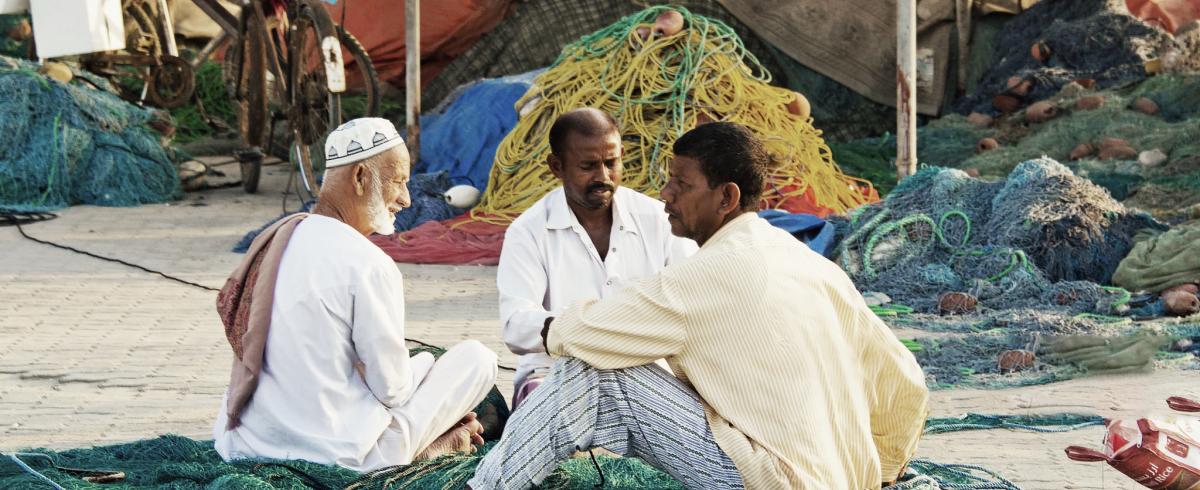
Categories to Explore
Welcome to the Resource Library. Here you will find a range of resources that you can use to support your small-scale fishery and community. Use the buttons above to browse resources by category or use the filters on the right to sort resources.
Cooperatives in small-scale fisheries: enabling successes through community empowerment
"Cooperatives in the small-scale fisheries sector are a way of maximizing long-term community benefits to deal with the threats of fisheries mismanagement, livelihood insecurity and poverty – harsh realities for many of the world’s small-scale fishers. Communities with successful community-based organizations are better off than those without (Ostrom, 1990). Successful cooperatives are possible, feasible and desirable and play an important role in community development. Cooperatives have the potential to empower small-scale fishers against environmental and socio-economic shocks such as catch shortfalls, sickness and death in their families, natural disasters and hunger.
The following case studies show how fisheries cooperatives contribute to improving the conditions of small-scale fishers around the globe."
FAO Podcast TZH 46 - How do you tackle illegal fishing?
Illegal, unreported and unregulated (IUU) fishing is worth an estimated US$23 billion annually, but it’s wreaking havoc on marine resources and the environment. The Port State Measures Agreement (PSMA), introduced in 2016, aims to tackle this global problem. It's the first binding international agreement that specifically targets illegal, unreported and unregulated (IUU) fishing. To date, 87 States are party to the treaty, with more to follow. To explain how the treaty works, we hear from Manuel Barange, director of Fisheries and Aquaculture, and Matthew Camilleri, senior fisheries officer at FAO.
Implementation Readiness Checklist
The Implementation Readiness Checklist enables fishery practitioners to evaluate the readiness of a new management system for implementation “on the water.” The Checklist provides a structure for identifying and planning for needs, gaps and potential challenges that must be addressed for successful implementation. Using the Checklist as a guide, practitioners can identify specific actions they can take to improve readiness for implementation. This can help ensure the fishery system is prepared to address common needs and challenges as they arise.
Fishery Characterization Guide
The Fishery Characterization Guide helps stakeholders gather contextual information about a fishery in order to make well-informed decisions during fishery reform and management processes. The Guide helps fishery practitioners examine several aspects of a fishery including: ecosystem, fishermen and fishing grounds, fishing infrastructure, species information, markets and sociocultural characteristics. When working with project partners in a fishery, reviewing the Guide can ensure that everyone has a common understanding of the characteristics present in the fishery.
A Fishery Manager's Guidebook
Fisheries management is a complex and evolving discipline and much is still being learned about what it involves, what works and what does not. The problem is compounded by the fact that fisheries management as a coherent discipline is still poorly defined and frequently equally poorly understood. This publication strives to identify the primary tasks in management of capture fisheries, with particular emphasis on sustainable utilization of the biological resources, and to demonstrate how these tasks should be integrated and coordinated to obtain the desired benefits from the biological resources in a sustainable and responsible manner.
WorldFish Aquaculture Training Videos
A series of high quality aquaculture training videos, designed to teach Egyptian fish farmers the industry’s best management practices.
Inshore fish aggregating devices in Timor-Leste
In Timor-Leste, reef fish stocks are dwindling, increasing the pressure faced by fishing-dependent households. Inshore fish aggregating devices (FADs) are helping combat this problem, explains WorldFish Senior Scientist David Mills, by increasing oceanic fish supply and protecting vital reefs.
Traditional knowledge Use for the Sustainable Management of Marine and Fishing Resources
This study offers systematization of three experiences in Central America where traditional knowledge has been used to improve marine spatial planning and frame a new policy oriented towards human rights approaches to fisheries and has given better tools for the governance of community-managed protected areas.
Women's Role, Struggles and Strategies Across Fisheries Value Chain: The Case of Lake Victoria - Tanzania
The focus of this study was on Dagaa (sardines) (Rastrineobola argentea) Fishery which involves mostly women in its overall value chain. The study sites were areas that are specialized in dagaa fishery and these include Lushonga Island located in the Muleba district of Kagera region, Mwanza Kirumba international fish market and in some of the landing beaches in Nyamagana and Ilemela districts in Mwanza.
Reserved Parking: Marine Reserves and Small-scale Fishing Communities: A collection of articles from Samudra Report by ICSF, 2008
This dossier puts together a collection of articles from the pages of SAMUDRA Report, the triannual journal of ICSF. The articles show that conservation and livelihoods are closely intertwined, and that top-down, non participatory models of conservation can be counterproductive. Despite being poor and powerless, fishing and coastal communities can be powerful allies in conservation efforts, given their longstanding dependence on natural resources and their traditional ecological knowledge systems. As the examples in the dossier reveal, it is possible for fishing communities to protect and conserve the environment, while continuing with sustainable fishing operations.
